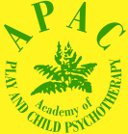Educators need to ensure that they are addressing children's education needs in individually sensitive ways, particularly when working with children who are coming to school from diverse living and care situations. Children in alternative care may be living in foster care, in adoptive families, in refugee camps, or in special community settings such as children's villages and orphanages.
The well-being of these children often falls within the social services domain and requires coordination among agency care workers, foster/adoptive parents or guardians, and school representatives. Ultimately, the school is responsible for ensuring and supporting all children in receiving an appropriate education.
Families, carers, social services, and schools should work together to enrich the educational opportunities for children in alternative care so as to contribute to positive educational outcomes. Many of these children have experienced trauma or have had inconsistent caregiving and education experiences.
The goal of this special issue of Childhood Education is to explore alternative family and care environments for children and how education services can offer holistic support that enhances learning and life outcomes for this vulnerable population.
The issue will offer insight into the diverse strategies being implemented to strengthen the quality of education across multiple disciplines for children being raised in alternative care situations, including those with special needs who may require specialized support. We are seeking manuscripts from a holistic perspective.
See more at: http://www.acei.org/alternative-family-manuscripts#sthash.We4Fw8lN.dpuf


 The central aim of our event is to highlight the latest developments in research, practice and policy, and to identify how these can be utilised, not only to protect children, but also to enhance their general well-being.
The central aim of our event is to highlight the latest developments in research, practice and policy, and to identify how these can be utilised, not only to protect children, but also to enhance their general well-being. It's a close run thing between sand tray used for 26% of the session time by boys and 18% by girls and drawing and painting 18% by boys and 28% by girls.
It's a close run thing between sand tray used for 26% of the session time by boys and 18% by girls and drawing and painting 18% by boys and 28% by girls.